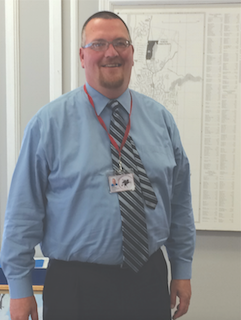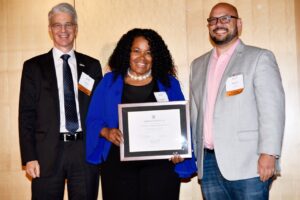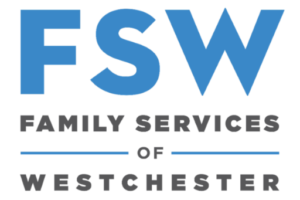 When Christopher Borsari was offered the position of Superintendent of Schools for the Public Schools of the Tarrytowns, he didn’t need to go to great lengths to learn about the District. He previously served as principal of Sleepy Hollow Middle School from 2006-2008, and that experience left a lasting impression. “I left [Sleepy Hollow Middle School] because I got the opportunity to become a high school principal, which was something I’d always wanted to do,” he explains.
When Christopher Borsari was offered the position of Superintendent of Schools for the Public Schools of the Tarrytowns, he didn’t need to go to great lengths to learn about the District. He previously served as principal of Sleepy Hollow Middle School from 2006-2008, and that experience left a lasting impression. “I left [Sleepy Hollow Middle School] because I got the opportunity to become a high school principal, which was something I’d always wanted to do,” he explains.
“But I always felt a combination of remorse and a little bit of a sense that I hadn’t finished what I’d set out to do. We were trying to create a true middle school – a philosophy and organization – and also to bring the 6th graders in, who at the time were at W.I. [Washington Irving School]. The year we were bringing the 6th graders up was when I left, so I’ve always felt that if I’d been able to [see the 6th graders move into SHMS] then I would have done what I needed to do.”
Borsari was even more eager to return to the District. “The one thing that always stuck in my mind [with regards to] Tarrytown and Sleepy Hollow were the great people,” he says. “First and foremost the faculty and staff, the kids, the parents, the community. Everyone embraced me, and that really left an impact upon me. So when the opportunity presented itself to come back here – clearly in a different role – that’s what jumped out at me.”
Now back in The Public Schools of the Tarrytowns, Borsari finds a very different District from the one he left. When he accepted the position this past spring, he became the fourth Superintendent the District has employed in the past five years. This extent of administrative turnover is not lost on Mr. Borsari. “I was gone for eight years,” he says. “There is not a single administrator in the District who was here when I was here.” Borsari hopes to put an end to the carousel of Superintendents and settle in for the long haul. “My hope would be that I can retire out of this job,” he says.
Rather than marching into office with guns blazing, Borsari is taking his time to grow into his new position. “[The Board of Education] is giving me the opportunity to come in here and learn as much as I can, first and foremost, and then to develop action plans. The only goal that I came in here with is to develop a collaborative, proactive, problem-solving culture in our administrative team to build stability and enhance confidence in the community. You build up accountability with people over time by being honest, by following through with what you say you’re going to do, and by being a good listener. You can only do that over time.”
“I think a big responsibility of mine is reaching out to all elements of the community – all of the stakeholders – at different grade levels, with different academic needs, different ethnicities, languages, whatever it might be,” he says. “My base plan is to work with our staff and administration and teachers in the buildings, and then also with representatives of the community, to develop communication structures. How do we, as a School District, communicate so that it’s inclusive, so that it’s clear, so it’s as proactive and responsive as it can possibly be? It’s one thing to say we put [information] up on the website, it’s another thing to say we reached as many people as we could by doing A, B, C, and D. I think that’s a really critical thing for us, and it’s actually one of the drafted goals for the Board.”
In addition to improving lines of communication, Borsari plans to focus on an all-too- familiar challenge. “I think the prime challenge for any school in the State right now is [balancing] the tax cap with student needs as costs increase,” he says. “Inflation stays around 4% and we have a tax cap of 2% if we’re lucky. How do you manage that for the long-term fiscal health of the District and continue to provide the best education for every kind of learner that we have in the District?”
On the subject of State testing, Borsari is both pragmatic (in his professional role) and understanding (as the father of children entering grades 8, 10, and 12). “As the Superintendent, I feel that I need to follow the rules of the State, but I also respect parents in that they have a right to parent their kids and make decisions,” he says. “I’m not against standardized testing. I think there’s a place for assessing how our students are doing and in turn how we are doing. I do think it’s gotten a little excessive at all the grade levels, and I think that linking that performance to teachers’ evaluation scores can set up a bad climate. If the adults are feeling stressed, it can trickle down [onto the students]. My biggest objection to it was the way they rolled out the testing.”
Borsari is excited with the beginning of this school year, and looking forward to beginning a long tenure in the District. “When I was a high school principal, I never would have left my high school “principalship” to become a high school principal somewhere else,” he says. “I can’t imagine leaving here to become a superintendent somewhere else. There’s a lot to establishing relationships, trust, and rapport. Learning about all of the intricate and complicated systems – the personnel, the relationships with the communities, getting to know the mayors, the village managers, the police department – is important. To be really successful in this position, it takes time.”






